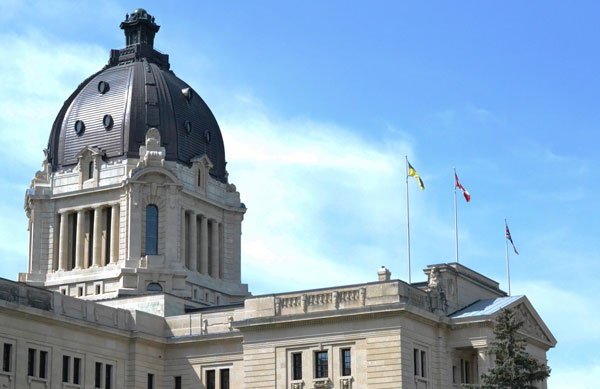
The provincial NDP says Saskatchewan’s government needs to look at new ways to help reduce spread of COVID-19 in northern communities.
NDP opposition critic for northern affairs Doyle Vermette said the provincial government has been “missing in action” when it comes to helping residents in areas like Hatchet Lake Dene First Nation. The northern community of 2,069 people has been on lockdown since June 30, with more than 100 new COVID-19 cases reported in the past week.
“(The government) needs to get in there,” Vermette said during an interview. “They need to give the resources and support to the community. Everyone in the community, they’re all doing what they can do, but they have limited resources up there.”
“It’s a crisis going on, and you’re hearing the leadership and health authority make that very clear,” he added.
On Wednesday, the NDP called on Premier Scott Moe to deploy mobile vaccination teams to Hatchet Lake, and provide the Northern Inter-Tribal Health Authority (NITHA) with the enough rapid-testing kits to fully understand just how many cases they were dealing with. The NDP also called on the province to improve communications with local leadership, which the NDP said will help increase vaccination rates across the north.
Those were three of six suggestions the official opposition made for reducing the spread of COVID-19. The other suggestions are long-term goals that include securing federal funding to expand the Hatchet Lake Health Centre, and addressing the overcrowding caused by housing shortages, which is making it difficult for patients to self-isolate.
“We need to make sure, when it comes to the vaccination, that people are fully vaccinated. That’s what we need to work on, and the government can do that part immediately,” Vermette said.
“There are long-term areas that will have to be address, but right now, they (the government) need to respond by reaching out to them immediately saying, ‘we’re committed to giving you the supports and resources you need right now to tackle the crisis.’”
Vermette said he’s been in communication with PAGC leadership to keep an eye on recent developments in Hatchet Lake. He and fellow northern NDP MLA Buckley Belanger have also taken out radio ads encouraging residents to get vaccinated.
He said the government needs to be more proactive in convincing residents to get vaccinated, and should partner with northern leaders to do so.
“We need to make sure that the province is doing everything that they can do to make sure people understand and are comfortable (getting vaccinated),” Vermette said. “Whether they use the elders in the community, or (someone else), they’ve got to get that message out.”
On Wednesday, SHA CEO Scott Livingstone told reporters they brought in additional staff to help the Hatchet Lake health team with contract tracing, close contacts, and other outbreak responses. Those staff members came from both NITHA and Indigenous Services Canada (ISC). Voluntary surge testing is also underway to help find other cases.
Livingstone said they’ve shipped more vaccines north, and told reporters the community has implemented a door-to-door approach to administering them.
“We’re monitoring the situation, and we’ll provide whatever support and resources that our partners at NITHA and ISC need,” he said on Wednesday.
Premier Scott Moe told reporters he’s happy with how the provincial government responded to the outbreak in Hatchet Lake. Moe spoke briefly about the issue during Wednesday’s media update, saying the government is “working quite hard” to help local residents get COVID-19 under control.
He also urged residents across Saskatchewan to get vaccinated, and said those who refused to do so were endangering themselves.
When asked if the province planned to pursue a more aggressive strategy to get all residents vaccinated, Moe said the numbers were already trending in the right direction.
“We’re seeing the 12 and up (first dose vaccination rate) climb about one per cent every seven or eight days,” Moe told reporters. “We would expect that to continue throughout the summer and into the fall, which would put us into a fairly solid situation going into this fall. We do strongly encourage everyone to continue take the time and make the time and get vaccinated.”
Moe added that current initiatives to increase the vaccination rate would continue, but the greatest initiative was to just encourage people to take the time to book an appointment.
“We are in a good place here in Saskatchewan and Canada with our access to vaccines, and we hope that everyone would ultimately consider that and keep themselves and those around them safe.”
Dr. Saqib Shahab, Saskatchewan’s chief medical health officer, said circumstances in the north and far north have been very different over the past 17 months, and that’s led to different strategies for stopping the virus’ spread.
He said vaccine uptake in rural areas across the province has been much lower than in Regina and Saskatoon. Shahab acknowledge that wasn’t true of all areas, but the data did show a trend. Young adults are also extremely hesitant to get vaccinated.
“Some communities have very high uptake, and vaccine teams are trying to understand why there’s variation, how issues of convenience can be addressed, how issues of complacency can be addressed, and if there’s any questions to be answered, how can they can be answered,” he said.
